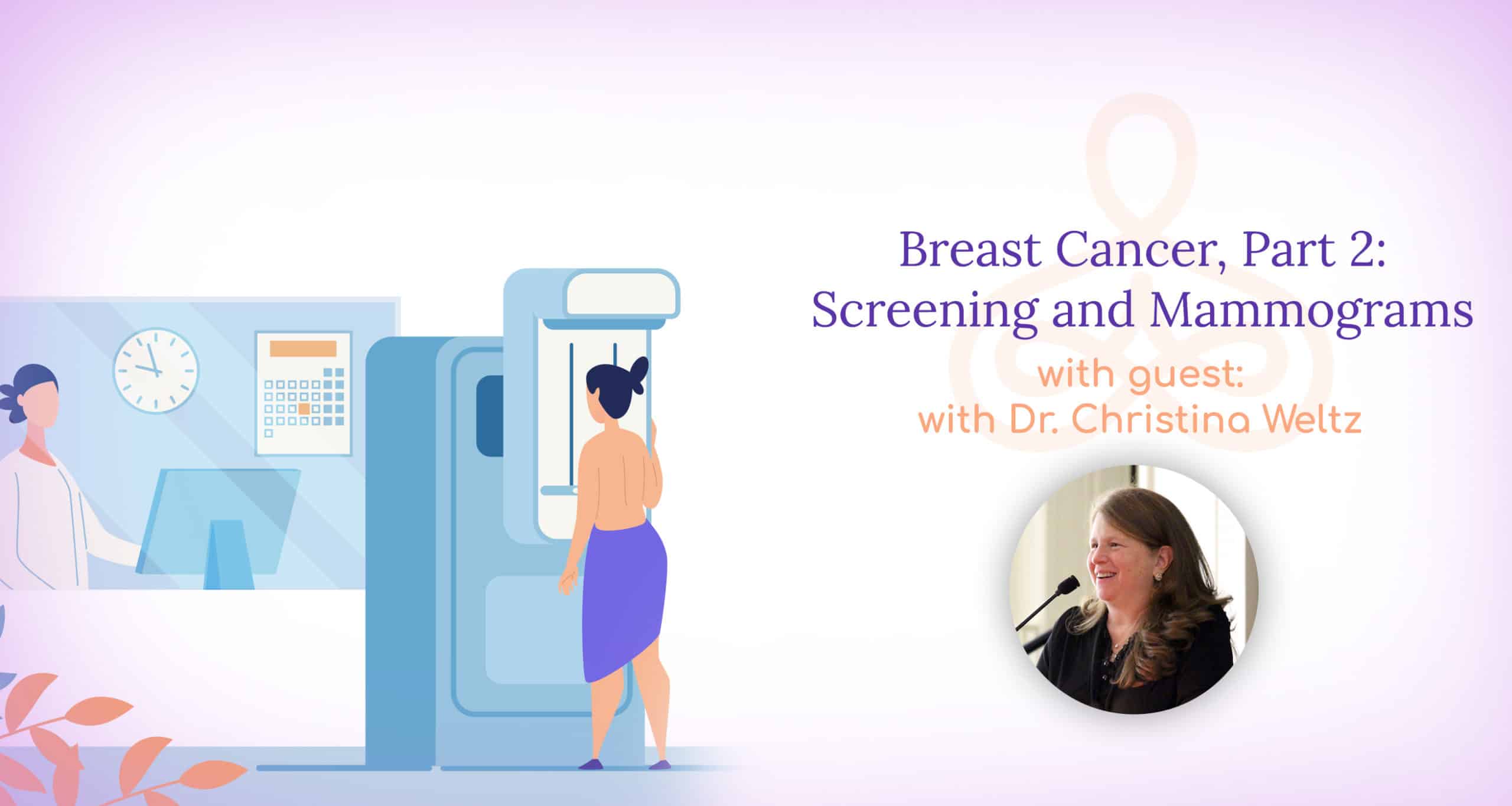Routine screening for breast cancer is important so that patients can detect cancer early, which can allow for the simplest treatment and most successful outcomes in many cases. However, there is some conflicting information about when should screening begin, how often it should be done, and what types of tests are recommended. In an episode of Healthful Woman, Dr. Christina Weltz explained the rationale behind these conflicting recommendations and her own opinion on breast cancer screening.
Why Breast Cancer Screening Recommendations are Contradictory
Dr. Weltz explains that conflicting recommendations behind the frequency or types of screenings women should undergo from various doctors or organizations is typically based on cost-benefit analyses for the tests. For example, the National Institutes of Health (NIH) concluded that among women in their late 30s or early 40s receiving annual mammograms, “the lives saved is not justified by the expense of screening every woman in that age group.” This includes both the monetary cost and the emotional cost for women who receive false positive diagnoses or simply face stress from undergoing the tests. So, while an annual mammogram can be life-saving for some, the NIH determined that the benefit did not outweigh the overall cost. Many doctors or their patients, however, may disagree with this evaluation.
Should I Perform Self-Exams for Breast Cancer?
Currently, organizations like the American Cancer Society actually recommend against performing regular self-exams for breast cancer. Dr. Weltz’s opinion is that this is “a seemingly bizarre recommendation given the fact that up until recently, the most common way in which breast cancer was diagnosed would be a woman finding a lump in her own breast.” Ultimately, doctors do not typically officially recommend that women should perform monthly self-breast exams. However, if you happen to notice a change in your breasts, you should tell your doctor immediately.
Should I Have a Clinical Breast Exam?
Just like self-breast exams, it is less common for organizations to recommend annual clinical breast exams. However, many gynecologists, internists, or family doctors will still recommend these exams as part of a woman’s yearly visit, typically beginning in the patient’s 30s. If your doctor does not already make this recommendation, you can discuss your options with them and determine the best plan for your health.
When Should I Have a Mammogram?
Dr. Weltz recommends that women should have an annual mammogram beginning at age 40. However, this will vary depending on whether the patient is considered high-risk due to genetic predisposition or BRCA genes.
Who Should Have a Breast MRI?
MRIs are highly effective at detecting breast cancer, and “can pick up cancers that clinical exam, self-exam, mammogram, and even ultrasound could not possibly pick up.” However, these tests are expensive, stressful, and uncomfortable, requiring patients to lie in a small machine for up to 45 minutes and have dye injected using a butterfly needle. For this reason, MRI screenings are typically only recommended for very high-risk patients.
Who Should Have Genetic Testing for Breast Cancer?
Genetic screening and DNA testing are available to help patients understand their risk for developing breast cancer. These options are typically recommended for those who have a significant family history of cancer or fall into higher risk ethnic populations, such as Ashkenazi Jewish. Ultimately, you should meet with a genetic counselor who can review your family and health history and recommend which types of tests would be beneficial for you.
(should we add a hyperlink to a cancer genetics blog of ours?)
Schedule an Appointment
To learn more about your breast cancer screening options, schedule a consultation at Carnegie Women’s Health. You can meet with experienced OB/GYNs or a genetic counselor to understand the best cancer screening options for your personal health. Call (315) 628-7063 or contact our office online.

